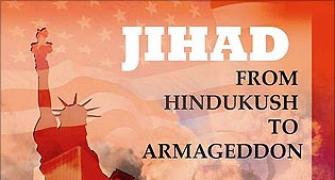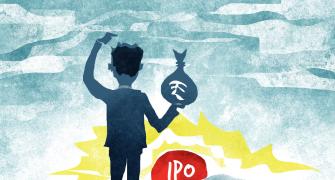At best, Dr Cohen says, President Barack Obama might come out in favor of a permanent seat for India at the United Nations Security Council; the issue, he says, is currently being discussed in administration circles. "But I don't know what the outcome will be, and this may not have a conclusion in time for the visit," he said.
"What's going to be interesting is to compare the big Obama visit to East Asia with the Manmohan Singh visit here. Then you get an exact comparison of how we regard the Chinese in particular as sort of central in Asia, and therefore how do you regard the Indians. Have you got the Indians down there with the Burmese or the Indonesians or what? Is India the number three or four in Asia -- and so are they in the Asia A or B team?"
The problem, Dr Cohen says, is that "The Obama administration has no strategic role for India. It is all Pakistan, and they have not thought of bringing India into the biggest foreign policy crisis we've had, which is Afghanistan and eventually Pakistan."
Hence, he said, Prime Minister Singh's visit could likely be signposted by arms sales, people to people exchanges and such, which are "nice things to do, which don't add up to a strategic relationship."
Thus, the South Asia expert said, the speeches and toasts will be "useful but empty rhetoric" without any strategic context. "And maybe there shouldn't be any. Maybe we ought to let the relationship percolate for a couple of years, till the Indians decide what they want to do and we decide how we are going to see them vis-a-vis the Chinese."
Dr Cohen believes that the central issue is Pakistan, but believes that both Dr Singh and Obama will evade or obfuscate as much as possible. "I just don't see any way in which we can talk about Pakistan," he said. "As long as we have troops in Afghanistan and these troops get 80 percent of their supplies through Pakistan, our freedom of manoeuvre vis-a-vis Pakistan is going to be limited."
"As far as the US is concerned, Pakistan is its strategic ally in South Asia. Without Pakistan, do we have alternatives in South Asia -- that is, India? The answer is up to the Indians, and the Indians are yet to have a coherent strategy for Afghanistan."
Dr Cohen believes, however, that Prime Minister Singh wants a normal Pakistan as a neighbor, and hence may take the initiative in a dialogue on Pakistan -- a dialogue that will suit the Indian temperament but not American ones. The US in a sense wants the Indians to grant Pakistan all kinds of favours, beginning with a resumption of the composite dialogue without pre-conditions and a reduction of troops along the border, but the Indians may have their own way of dealing with Pakistan."
Dr Cohen believes Dr Singh, like his predecessor Atal Bihari Vajpayee, sees Pakistan not only as a strategic threat but also as a strategic opportunity. "We (the United States) might be part of a Manmohan Singh plan to being about the normalisation of Pakistan, because I don't see any ideas in Washington at all."
He believes that India's concern that the US puts its relations with China way ahead of those with India "reflects Indian angst over the relationship."
"The relationship we have with India is moving into the zone that we have with France -- we understand each other, we disagree, and we get angry with each other from time to time, but we recognise that the relationship is important in the long run. But the French don't come back and say, 'Well, you like the Germans more than us, or the English more than us'. So in a sense, India has to float on its bottom."
Part of the problem, says Dr Cohen, is that there is lack of clarity on what India is up to vis-a-vis the nuclear issue, the environment issue and even with regard to China. "India wants the best of all possible worlds, and I am not sure how many Americans understand or appreciate it," he said. "So it comes down to simply satisfying the Indians symbolically, and in this regard support for a permanent seat in the UN Security Council would do that -- but again, that's hollow because there's not going to be a change in the UN Security Council for a long, long time."
A serious concern, Dr Cohen says, is that the Obama administration has downgraded the Indian policy part. "They haven't thought about India with any great depth. And the problem goes back to the President, who focused on Afghanistan -- and that led him to worry about Pakistan legitimately. But then, India became a tertiary factor -- India is what you do after you worry about Afghanistan and Pakistan. So it's not a strategic relationship in the sense of seeing India in a larger Asian scheme."






